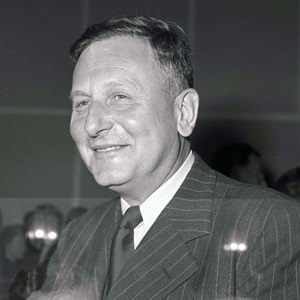Why was Paul Hermann Müller Awarded the Nobel Prize for Physiology or Medicine in 1948?
Paul Hermann Müller: Nobel Laureate for Discovering the Power of DDT in Insect Control
In 1948, the Nobel Prize for Physiology or Medicine was awarded to Paul Hermann Müller, a Swiss chemist, for his groundbreaking discovery of the insecticidal properties of dichlorodiphenyltrichloroethane, commonly known as DDT. Müller’s research revolutionized pest control and had a profound impact on public health and agriculture worldwide. This article delves into Müller’s remarkable achievements and the reasons why he was honored with the Nobel Prize.

The Discovery of DDT as an Insecticide:
In the early 1930s, Müller embarked on a mission to find an effective and affordable solution for controlling pests that ravaged crops and spread deadly diseases. His research focused on synthesizing new chemical compounds with potential insecticidal properties. After numerous experiments, Müller successfully synthesized DDT in 1939.
Subsequent testing revealed that DDT was highly effective in killing a wide range of insects, including disease-carrying mosquitoes, agricultural pests, and disease vectors like lice. The breakthrough discovery marked the beginning of a new era in insect control, offering a powerful tool to combat insect-borne diseases and protect crops from destructive pests.
DDT and Its Impact on Public Health:
One of the most significant consequences of Müller’s discovery was its immense impact on public health. DDT proved to be a potent weapon against mosquitoes, which were responsible for the spread of deadly diseases such as malaria and typhus. The widespread use of DDT in mosquito control campaigns significantly reduced the incidence of these diseases in many regions of the world.
For this reason, DDT became an instrumental tool in the fight against malaria, saving countless lives and alleviating the burden of disease in developing countries. Its effectiveness led to the eradication of malaria in certain areas, and it played a vital role in the success of the World Health Organization’s malaria eradication program in the mid-20th century.
DDT in Agriculture and Food Production:
Aside from its impact on public health, DDT had a crucial role in agricultural practices. By controlling crop-damaging insects, DDT helped boost agricultural productivity and food security. The availability of DDT as an insecticide revolutionized pest management in agriculture, enabling farmers to protect their crops more effectively and efficiently.
Global Recognition and Nobel Prize:
In recognition of his remarkable contribution to science and public welfare, Paul Hermann Müller was awarded the Nobel Prize for Physiology or Medicine in 1948. The Nobel Committee praised Müller for “his discovery of the high efficiency of DDT as a contact poison against several arthropods,” acknowledging the significance of his work in revolutionizing insect control and its implications for human health and food production.
Legacy and Environmental Concerns:
Although DDT was initially celebrated for its beneficial effects on human health and agriculture, its long-term use raised environmental concerns. Over time, it was discovered that DDT had adverse effects on certain wildlife, including birds and fish. It was found to persist in the environment, accumulating in the food chain and leading to potential harm to non-target species.
In response to growing environmental awareness, the use of DDT was restricted and eventually banned in many countries. Despite its limitations, Müller’s discovery of DDT’s insecticidal properties remains a pivotal moment in the history of pest control and public health. It paved the way for the development of safer and more targeted insecticides while emphasizing the importance of responsible and sustainable pest management practices.
Paul Hermann Müller’s Nobel Prize in 1948 was a well-deserved recognition of his groundbreaking discovery of DDT as a powerful insecticide. His research revolutionized insect control, making significant contributions to public health, agriculture, and food production. While DDT’s use eventually raised environmental concerns, Müller’s work remains a testament to the potential of science in addressing critical challenges and improving the well-being of humanity. His legacy continues to inspire research in pest management and sustainable agricultural practices, driving progress towards a healthier and more balanced environment.




